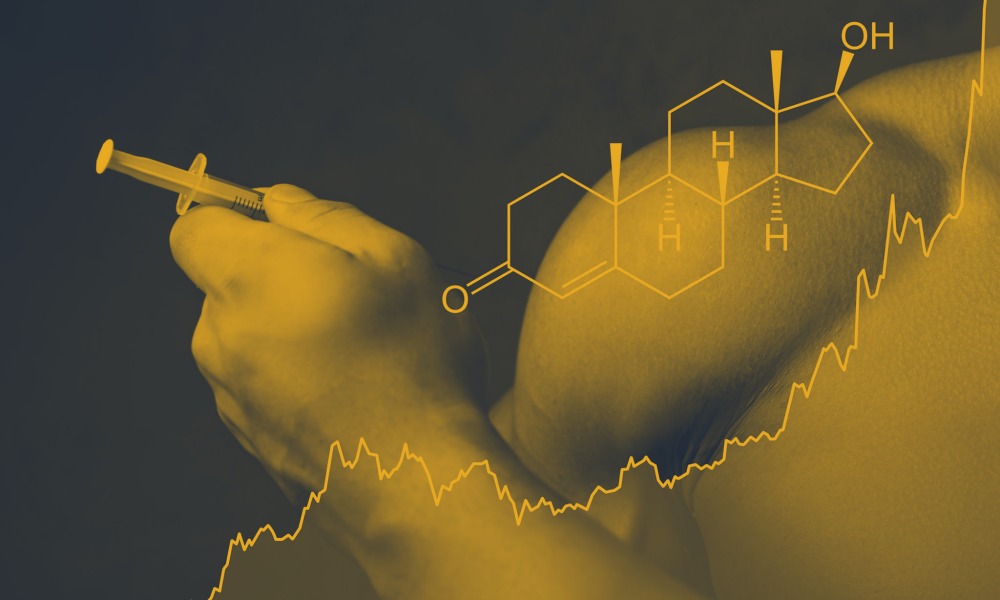As a man aging can be frustrating as you start to notice some changes in your body. You may be feeling more tired than usual, having trouble sleeping, or noticing that your sex drive just isn’t what it used to be. These changes are normal for men in their 50’s and 60’s. But what if you’re still in your 30’s or 40’s? This can be problematic.
Testosterone is a hormone that’s essential for sexual and reproductive health in men. It helps to regulate sex drive, bone mass, fat distribution, muscle mass and strength, red blood cell production, Brian function etc. When levels of testosterone start to decline—a process that begins around age 30—you may start to experience some of the changes in your body.
If you’re experiencing any of the following nine symptoms, you may need testosterone replacement therapy.
1. You Have a Diminished Sex Drive
A decreased libido is one of the most common signs of low testosterone levels. If you used to enjoy sex on a regular basis but now find yourself disinterested or struggling to get aroused, it could be a sign that your testosterone levels are low. Thankfully, testosterone replacement therapy can help to rekindle your sex drive and give you back your mojo.
2. You’re Experiencing Erectile Dysfunction
Another common symptom of low T is erectile dysfunction (ED). If you’re having trouble getting or maintaining an erection, it could be due to a drop in testosterone levels. Testosterone therapy can help by increasing blood flow to the penis and improving sexual function.
3. You Have Less Energy Than Usual
Feeling tired all the time is another tell tale sign that your testosterone might be low. Testosterone plays an important role in regulating energy levels, so when levels start to decline, you may find yourself feeling exhausted both mentally and physically. If you’re struggling to get through the day without a nap or two, it could be time to explore testosterone replacement therapy.
4. You’re Gaining Weight
Fluctuations in weight are normal as we age—but if you’ve noticed a recent and unexplained increase in weight gain, it could signal low T levels. One study found that men with obesity had significantly lower testosterone levels than those who were not obese suggesting that there might be a link between weight gain and low testosterone. Testosterone replacement therapy has been shown to help men lose weight by increasing muscle mass and reducing body fat percentage.
5. You’ve Lost Muscle Mass
Along with gaining weight, you might also notice that you’re losing muscle mass as you age—particularly if you haven’t been exercising regularly or eating a healthy diet. This loss of muscle mass can happen because of declining testosterone levels; as testosterone decreases, so does muscle mass. Testosterone therapy can help by increasing muscle protein synthesis and stimulating bone growth—both of which can lead to increased muscle mass over time.
6. You Have Less Body Hair Than Usual
Another common symptom of low T is decreased body hair growth—particularly on the chest and face. This happens because testosterone plays a role in hair growth; as levels start to decline with age, so does hair growth. If you’ve noticed that you’re starting to go bald or have patches of missing hair on your body, testosterone therapy might be right for you.
7. Your Mood Has Been Changing Lately
Low testosterone levels can also lead to moodiness and irritability—particularly during periods of stress. If you’ve been feeling anxious or down more than usual, it could be due to declining hormone levels. Research has shown that testosterone therapy can help improve mood by alleviating symptoms of anxiety and depression.
8. You have osteoporosis
Osteoporosis, or brittle boned, is common in older adults—but it’s not something that should happen if your hormones are properly regulated. Low T levels can lead to decreased bone density, which makes bones more fragile and susceptible to fractured, so if you’ve been diagnosed with osteoporosis, testosterone replacement therapy might help improve your condition.
9. Your Blood Pressure Is Too High
High blood pressure is another symptom often associated with low T; one study found that 70% of men with hypertension also had low testosterone levels. If your blood pressure is higher than it should be, testosterone replacement therapy might remedy your issue.
Enroll in TRT Nations 5 Star Testosterone Replacement Therapy plan today![/vc_column_text][/vc_column][/vc_row]

